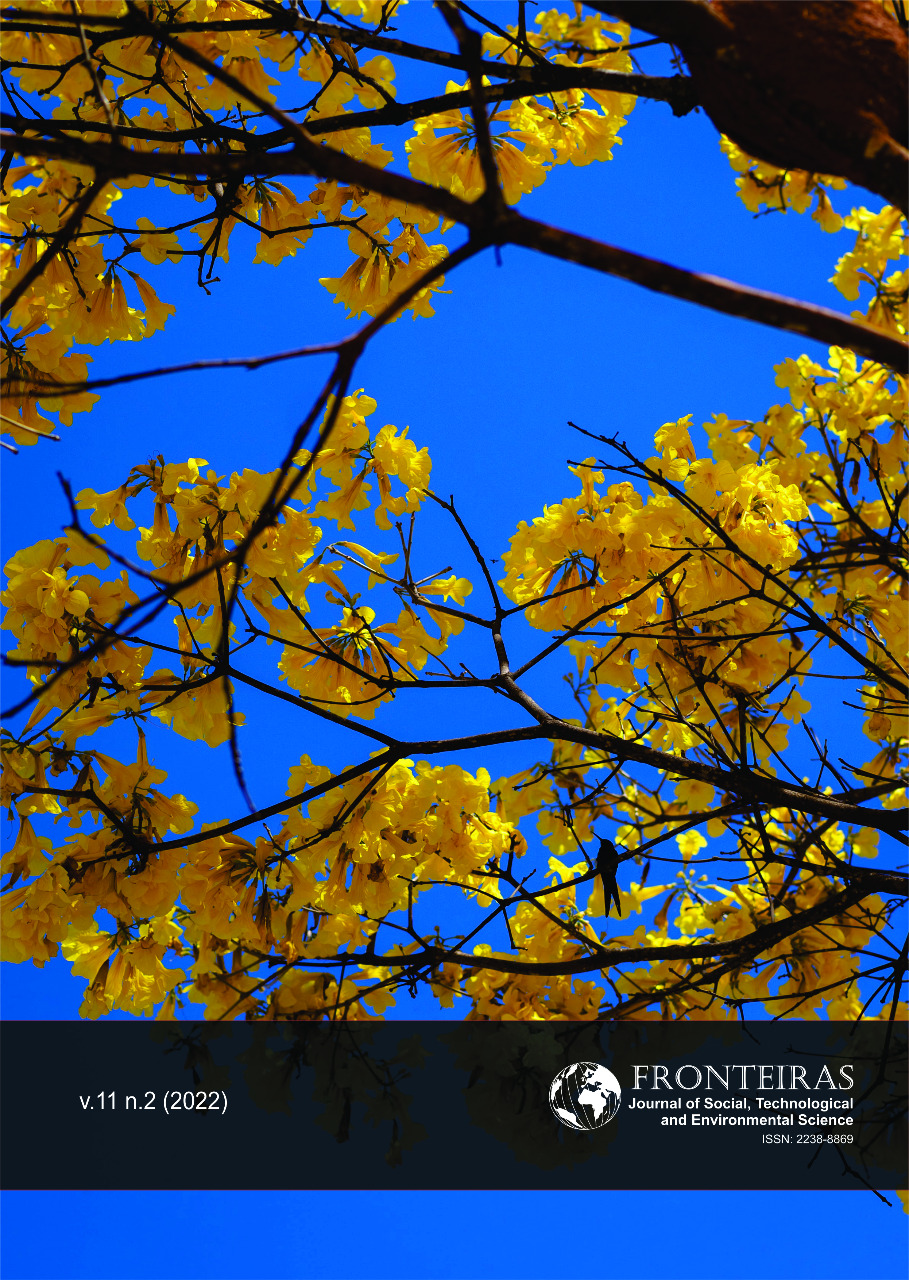Frontier, Identity Constructions and Environment. Water as an Essential Condition for Viewing the Muslim Other in the Journey to the Iberian Peninsula by the Physician Hieronymus Münzer (1494-1495)
DOI:
https://doi.org/10.21664/2238-8869.2022v11i2.p116-130Keywords:
identity constructions, water, Iberian Peninsula, muslimsAbstract
Between 1494 and 1495, the German physician Hieronymus Münzer travelled to the Iberian Peninsula, which resulted in an extensive written testimony traditionally known as Itinerarium. The main focus of this northern traveller's observations is not the human element, as several authors have already pointed out. In fact, he focuses his attention especially on the economic element (products, goods, trade, etc.) and, by association, the territories and places where this element takes place. However, he also unquestionably develops evaluative perspectives of the Iberian human landscape, in its most diverse expressions. We sought to reflect precisely upon one of the components of the human sphere the northern traveller contacted – the Muslims –, with special consideration for the resulting identity constructions and alterity exercises, which, in our perspective, are often closely associated with the central issue of water and, consequently, with the territories/places visited and the intrinsic frontiers. We looked for the answer to, what we consider, a paramount and truly original question: to what extent does water assume a "centrality" in this northern European doctor's view of the Other, specifically the Muslim, in the context of direct observation and first-hand experience.
References
Branco MRC 1989. Portugal nos finais do século XV visto por Münzer. In Congresso Internacional Bartolomeu Dias e a sua Época: Actas. Vol. IV, CNCDP, Porto, p. 285-299;
Camacho JC 2003. Identidade, tradição e Modernidade. Boca do Inferno. Revista de Cultura e Pensamento, nº 8, Julho: 55-81.
Castells M 2008. O Poder da Identidade. Paz & Terra, São Paulo.
Fortes C 2013. O Conceito de Identidade: considerações sobre sua definição e aplicação ao estudo da História Medieval. Revista Mundo Antigo, vol. II: 29-46.
Goldschmidt EP 1938. Hieronymus Münzer und seine Bibliothek. The Warburg Institute, London.
Hartog F 2014. O espelho de Heródoto. Ensaio sobre a representação do outro. UFMG, Belo Horizonte.
Herbers K 2020. Hieronymus Münzer Itinerarium. In Klaus Herbers unter Mitarbeit von Wiebke Deimann, René Hurtienne, Sofia Meyer, Miriam Montag, Lisa Walleit (Herausgegeben). Monumenta Germaniae Historica. Reiseberichte des Mittelalters. Band 1, Harrassowitz Verlag, Wiesbaden.
Horta JSH 1991. A imagem do Africano pelos portugueses antes dos contactos. In AL Ferronha (coord.). O Confronto do Olhar, O Encontro dos Povos na Época das Navegações Portuguesas. Editorial Caminho, Lisboa, p. 43-69.
Kemper TD 1993. Sociological Models in the Explanation of Emotions. In M Lewis, JM Haviland (ed.). Handbook of emotions. The Guilford Press, New York, p. 41-51.
Lopes PC 2011. A visão do Outro nas Cartas de Itália de Lopo de Almeida. Revista de História da Sociedade e da Cultura, n. 11, Coimbra: 117-140;
Luis Molina A. 2013. Viaje de Jerónimo Münzer por Portugal. Revista EPCCM, n. 15: 319-336.
Martínez García P 2015a. El cara a cara con el otro: la visión de lo ajeno a fines de la Edad Media y a comienzos de la Edad Moderna a través del viaje. Peter Lang, Frankfurt am Main.
Martínez García P 2015b. El Sacro Imperio y la diplomacia atlántica: el Itinerario de Hieronymus Münzer. In JÁ Solórzano Telechea, B Arízaga Bolumburu, L Sicking (ed.). Diplomacia y comercio en la Europa Atlántica medieval. Instituto de Estudios Riojanos, Logroño, p. 103-122.
Münzer J. 1991. Viaje por España y Portugal (1494-1495). Ramón Alba (ed.), Polifemo, Madrid.
Pohle J 2017. Os mercadores-banqueiros alemães e a Expansão Portuguesa no reinado de D. Manuel I. CHAM, FCSH/NOVA-UAc, Lisboa.
Pohle J 2019. Portugal e os Portugueses no olhar de viajantes e mercadores alemães no alvorecer da Modernidade. In PC Lopes (coord.). Portugal e a Europa nos séculos XV e XVI. Olhares, relações, identidade(s). IEM-CHAM, Lisboa, p. 243-262.
Roldán Castro F 1994. La frontera oriental Nazari (s. XIII-XVI). El concepto de alteridad a partir de las fuentes de la época. In P Segura Artero (coord.). Actas del Congreso la Frontera Oriental Nazarí como Sujeto Histórico (S.XIII-XVI) : Lorca-Vera, 22 a 24 de noviembre de 1994. Instituto de Estudios Almerienses, Lorca-Vera, p. 563-569.
Salicrú i Lluch R 2010. Usi e costumi iberici agli occhi dei viaggiatori europei del Quattrocento. In G Teresa Colesanti (a cura di). Le usate leggiadrie. I cortei, le cerimonie, le feste e il costume nel Mediterraneo tra il XV e XVI secolo. Montella Avellino : Centro Francescano di Studi sul Mediterraneo, Montella, p. 237-254.
Seixo MA 2000. L’écriture du voyage et le recherche de l’altérité. In IA Magalhães (coord.). Literatura e Pluralidade Cultural. Cosmos, Lisboa, p. 777-783.
Todorov T 1990. Nous et les autres. La réflexion française sur la diversité humaine. Seuil, Paris.
Todorov T 2019. A conquista da América. A questão do outro. Martins Fontes, São Paulo.
Tooby J, Cosmides L 1990. The Past Explains the Present: Emotional Adaptations and the Structure of Ancestral Environments. Ethology and Sociobiology, n. 11: 375-424.
Vasconcelos B 1930. “Itinerário” do Dr. Jerónimo Münzer. O Instituto, Vol. 80: 541-569.
Vieira AL 2008. A Alteridade na Literatura de Viagens Quinhentista. Olhares e escritas de jean de Léry e de Fernão Cardim sobre o Índio Brasileiro, Colibri, Lisboa.
Woodward K 1997. Concepts of Identity and Difference. In K Woodward (ed.): Identity and difference. Sage Publications, London, p. 7-59.
Downloads
Published
How to Cite
Issue
Section
License
This journal offers immediate free access to its content, following the principle that providing free scientific knowledge to the public, we provides greater global democratization of knowledge.
As of the publication in the journal the authors have copyright and publication rights of their articles without restrictions.
The Revista Fronteiras: Journal of Social, Technological and Environmental Science follows the legal precepts of the Creative Commons - Attribution-NonCommercial-ShareAlike 4.0 International. 


